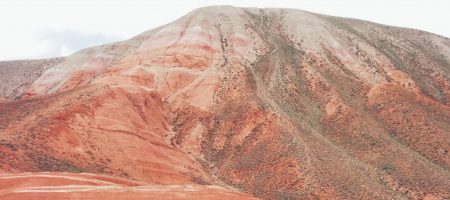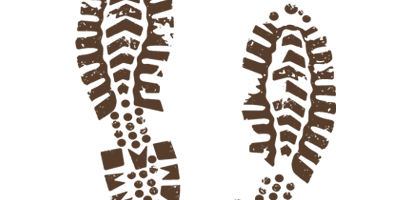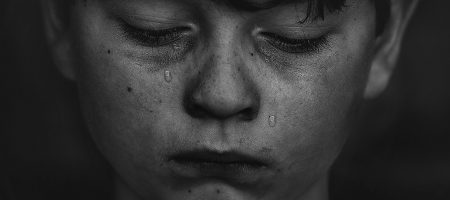Survival Preparation – Wildfire Readiness
 Written by Read Omohundro (read98omo@hotmail.com)
Written by Read Omohundro (read98omo@hotmail.com)
Despite the relief of this week’s rain, the fire danger our state still lingers. The recent fires forcing people out of their homes reminds me of the natural instinct of survival. Watching the news and listening to the heartfelt stories of those who lost so much due to the fires compels me to discuss the tactical need to prepare for such disasters.
Survival does not mean living in comfort. Survival means existing in a manner necessary to live another day. Preparing for a disaster, whether tornado, fire, flood, or an endemic plaque, means accounting for the items necessary to survive. In today’s world, necessary items for survival include vital documents. Survival means being able to produce these documents to insurance companies and aid organizations. Making such items available will reduce the emotional strain following disaster.
Often, people do not take into account the emotional toll that comes with evacuating your home to escape and survive a natural disaster. During 2005, I worked with the survivors of Hurricane Katrina helping to recover loved ones, repairing homes, and handing out food and supplies.
I witnessed first-hand the effects a natural disaster can have on those not prepared. The shock, the sadness, the feeling of loss can be curtailed by preparing a few additional items beyond a bug-out bag.
Your bug-out bag is a key survival tool. But remember, you can only carry so much. Not all of your valuables will fit in your vehicle or on your person. Please take these extra steps to prepare for a natural disaster, particularly large scale wildfire:
1) Keep copies of original documents with relatives residing far away. If you find yourself fleeing in a hurry to escape a disaster, you will need those documents to obtain new forms of identification or deal with the insurance company. Copies of deeds, birth certificates,
marriage certificates, insurance video of your belongings, etc…
2) Ensure you have a way to get to safety. Keep vehicles topped off with fuel. Driving to a relative or friend’s house 300 miles away is easier on a full tank of gas. Remember, you’re not the only one leaving the area. Expect road delays from congestion and detours.
3) Keep water in your vehicle. Placing plastic bottles of water in the trunk or spreading them out in the storage compartments of your vehicle will ensure you have something to drink as you escape.
The list can go on and on, but I see these three things causing the most turmoil in peoples’ lives as they try to rapidly escape from harm.
Tactically speaking, “being prepared” means having thought out and thought through a plan based upon a particular scenario. Given the immediate threat of fire to our state, please think about how you plan to escape. Think about what steps you will have to take to communicate with the insurance company. The American Red Cross will be able to
assist you faster than FEMA. Below are some links to assist in your planning.
- http://www.redcross.org/preparedness/cdc_english/evac-plan.html
- http://www.disaster.salvationarmyusa.org/training
- http://www.ok.gov/OEM
- http://www.fema.gov
Rehearsals are the final steps to ensuring you are prepared. Your plan can be sound, but it may fall apart completely if you fail to practice your escape.
My thoughts and prayers go out to those affected by the recent fires.
[border]
In Response, By Vickie (okiemomx2@yahoo.com)
I didn’t get time to be online until midnight last night so I know that I’m a day late on this but I had a few ideas that I wanted to share.
Wildfires are definitely a huge concern for us lately. I know that at least one person died as result of the fire near Norman. Her name was Linda Zoldoske, she was a terrific lady. She was killed while she was trying to rescue her animals.
I really like the idea of using out of area relatives to store duplicate information. An easier option than sending it to them on paper would be to put the information on a c.d. or thumb drive. You could also keep on in a safety deposit box for easy access.
If we had a fire I would lose a lot of important information that I keep for homeschooling and volunteer work in my computer. Can you image losing all your lesson plans & grades. I like to send myself a copy as an email then place it in a online file so I will always have access to a copy. You can do something similar with your pictures. There are numerous online picture storage services that use can use many are free.
Make your property more fire resistance. Replace materials with more fire resistance materials such as bricks, stucco and metal roofing. Remove cedar trees from your property. Make a “defensible space” around your house. No dry vegetation, firewood, trash, brush, etc within 30 ft of the house.
Have more than 1 evacuation route. Our neighborhood has only one way in and out by auto. So we have a plan for leaving on foot if necessary.
Make sure that your kids know what to do in case you are not home. Make sure that they know under what circumstances it is okay to leave with emergency personnel and neighbors. Make sure that they have emergency numbers and your phone numbers memorized. It would be terrible if you were killed trying to get home when it wasn’t necessary because they had been evacuated.
Have a written plan for evacuation, it is easy to panic and waste time in a emergency. I am working on one to print and put up on the frig. It will include emergency phone numbers, who is responsible for packing what and where everything is located. It will have more than one plan. Here is a rough idea of my plans. They will include more details such as a list of items, who packs it and in which vehicle (or by which door if the cars are not home)it should be placed, and where is it located. I will highlight items of most importance that I need my kids to pack if I’m not home to work on my list.
Plan A: Pack a few pieces of family furniture (such as my Great Aunt’s sewing machine), pictures and keepsakes, important papers, preps, and animals.
Plan B: Pack pictures and keepsakes, important papers, and animals.
Plan C: Animals
Pack D: People only, get out of there!
Read thank you for the information and helping to keep us safe.







